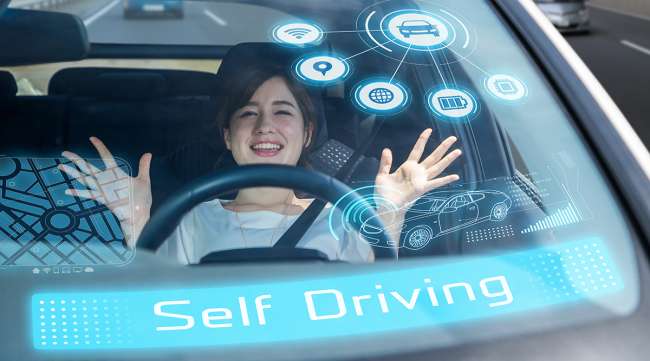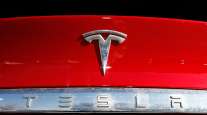Americans Warming to Self-Driving Vehicles, Survey Finds

U.S. drivers are still cautious — but they’re getting used to the idea of self-driving cars.
Some 63% of American adults fear riding in a self-driving vehicle, according to a survey from auto club AAA. That’s a notable change from a year ago when 78% reported feeling fearful. Conducted in early December, the survey polled 1,004 randomly selected adults.
“U.S. motorists are beginning to embrace the technology,” said Suna Taymaz, vice president of autonomous vehicle strategy for AAA Northern California, Nevada & Utah.
What accounts for the thaw? “Seeing is believing,” she said. San Francisco, Silicon Valley, Pittsburgh, Arizona and Michigan are all places where autonomous test vehicles have become relatively common sights. There’s been a steady drumbeat of news and discussion about the cars, as well as legislative efforts to regulate them.
RELATED: Safety advocates say not so fast on driverless cars
Fewer men (52%) than women (73%) expressed fear of riding in robot cars, while Millennials were the most trusting, with 49% saying they were afraid to ride in the futuristic cars, down from 73% last year.
The venerable auto club hopes to lead the way in demystifying the technology.
Since November, AAA has operated a free autonomous shuttle in tourist mecca Las Vegas as a way to educate the public. The bright-blue electric minibus had given about 10,000 rides as of early January. Despite a fender-bender accident on its first day — which was pegged as the other driver’s fault — the shuttle has won positive feedback from riders, AAA said.
Post-ride surveys ask passengers to rate the “driver” (meaning the robot controls), and 98% give five stars, Taymaz said. Comments included “This is the end of road rage” and “I’m legally blind and I can’t wait to benefit from self-driving technology,” she said.
RELATED: Tesla crash with autopilot triggers safety board’s interest
AAA recently partnered with autonomous vehicle maker Torc Robotics to hash out safety criteria for robot cars.
“The two things needed to commercialize this technology are public perception and transparency around safety criteria,” Taymaz said.
Like many companies, AAA could experience significant disruption if self-driving taxi services replace personal car ownership. Its revenues come from selling insurance and car-club memberships.
Taymaz, who was previously vice president of corporate strategy, is charged with looking out 20, 30 or 50 years at major changes in transportation — like the shift toward autonomous, connected, electric and shared vehicles — and how they will affect AAA members.
“We’ve been privileged to have a stable business model for the past 100 years,” she said. “If the entire transportation model changes, we’ll have to adapt as well.”
Distributed by Tribune Content Agency, LLC




